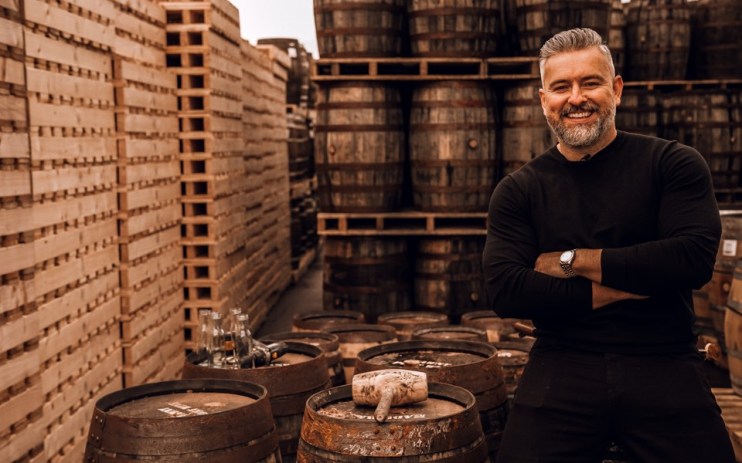Should you look at Irish whiskey as an investment?

With St Patrick’s Day on the not-too-distant horizon, thoughts inevitably turn to iconic festivities to be enjoyed. For many this involves toasting a taoscán of Irish whiskey. The day and drink are synonymous with each other. But this year maybe you should think about investing instead of drinking your whiskey?
The Irish end their toasts by saying Sláinte which means health and is the Irish equivalent to cheers. This St Patricks Day in addition to raising a glass to your health, you could be raising one to your wealth.
With the turbulence of the financial markets 89 per cent of investors have been looking at alternatives to reduce risk, and there has been a 267 per cent increase in Google searches for whiskey investment from this time last year.
But what is this form of investment and why invest when you could be drinking the stuff? To understand the opportunity, you must first understand the history.
Turbulent history
Irish whiskey went from the biggest selling spirit globally to near collapse. Production went from 12m cases to less than 100,000, losing 99 per cent of its market share and going down to only three distilleries.
But this Irish spirit is now enjoying an astonishing renaissance. Subsequent and explosive growth — 300 per cent in the past 10 years alone ─ has seen this leap to 12m cases in 2020. Production is set to rise to 24m cases by 2030, which is more than the country has ever produced in its history. The Irish industry is set to hold onto its crown as the fastest-growing global whiskey, with a compound annual growth rate (CAGR) in excess of seven per cent to 2022. Value and volume are set to increase by more than a fifth from 2018 to 2022 alone.
But despite the volume growing, it cannot keep up with the pace of growth and soon demand for aged spirit will outweigh demand, presenting an opportunity for those owning casks of whiskey.
How investment works
There are two ways to invest in whiskey; by the cask and rare bottles. For either route, quality and rarity has the biggest impact on price. But with rarebottles, special events and limited releases. For rare whiskey investors must have an ear to the ground to understand which whiskeys will grow the most in value. However, with cask whiskey the barriers to entry are lower.
The whiskey making process is capital and labour intensive. Due to the ageing process, it takes distilleries at least three years for the new make spirit to become whiskey. With many distilleries waiting ten or more years before selling their whiskey. To cover costs and raise capital, distilleries allow private investors to purchase these ageing casks, either directly, or through an exclusive broker.
At Whiskey & Wealth Club our focus is bridging the gap between distilleries and investors. By purchasing casks of premium new make (single malt or pot still) spirit at discounted wholesale rates from the best distilleries and whiskey brands. Once matured, the investor can then decide to sell back to the distillery for profit, bottle privately, keep as a whiskey collectable or sell on.
Appetite for whiskey investment
Investor appetite for cask whiskey investment is growing but as an alternative investment, it is still lesser-known. The Whiskey & Wealth Club research 2020 Cask Buyer Report found that around two thirds (62 per cent) of investors reported that they knew nothing about cask whiskey buying. However, once investors were then given a brief statement on cask whiskey, outlining the opportunity and 55 per cent had more interest. Highlighting the impact and need for greater insight.
The best way to gain that insight is to read up on the market, understand what you’re buying, the opportunity and returns. Make sure that your broker is registered with Irish Revenue Commissioner or local tax authority who track cask ownership.
The decision
Should this peak your interest, make sure you do your research. The market is projected to continue its strong growth for the next 20 years. As demand for whiskey grows and more brands enter the market, they will require mature stock to produce their own whiskey. This is where the investors come in. They can sell their mature casks to new brands to meet the global surge in popularity of Irish whiskey.
As a whiskey lover, the decision to toast or to invest is not an easy one. So I choose both.